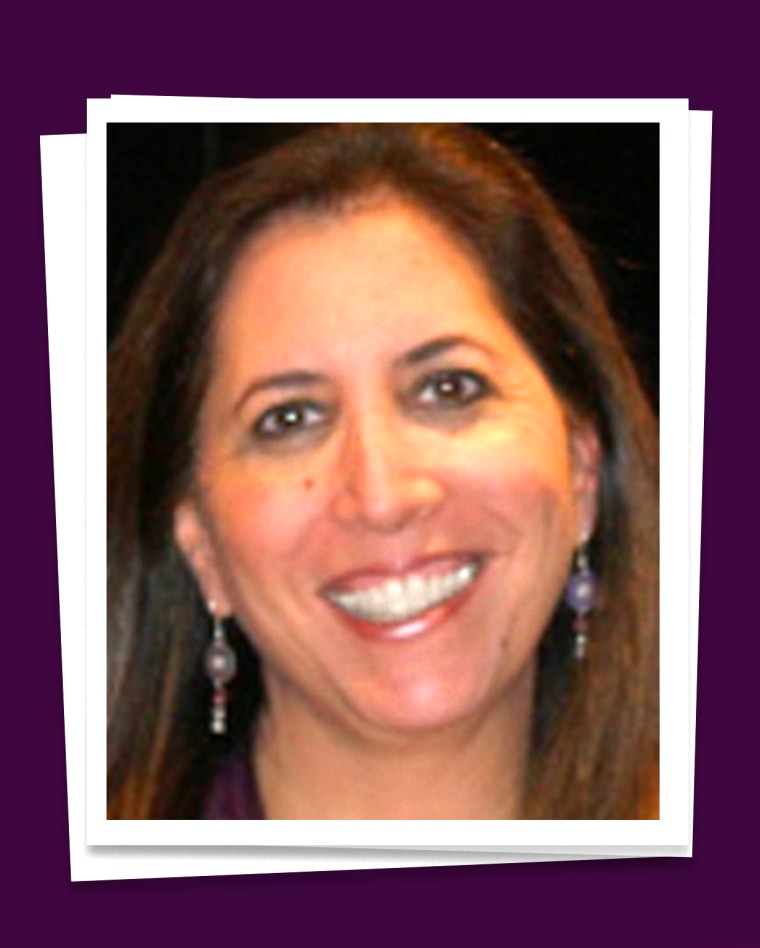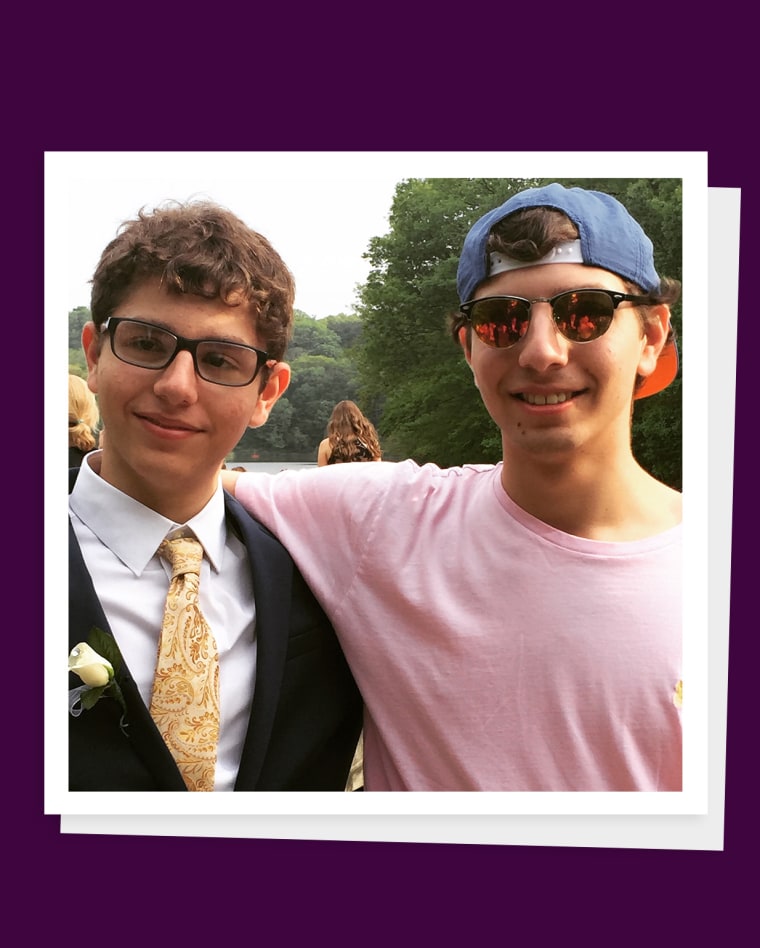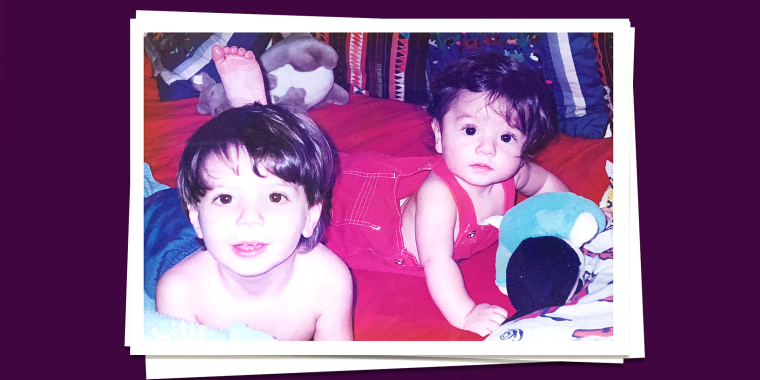Editor's Note: The decision of what to do with leftover embryos can be deeply emotional for families whose struggles to have children involved complicated and expensive fertility treatments. Experts do not know exactly how many frozen embryos sit unused and abandoned in storage tanks at clinics across the U.S., but it is estimated to be in the hundreds of thousands — possibly millions.
Erica Levens is an associate director for TODAY who hadn't thought much about the 14 embryos she left behind at a cryo bank on Long Island, New York, until one day she received a letter saying it was time for her to make a decision. This is her story.
After I got married, I went to the OB-GYN and he declared I was “extremely fit and healthy” — that was the quote. Go and reproduce. Procreate! I was in my late 20s, but I was having trouble. My father, who was also an OB-GYN, said that if nothing happens in six months, we should have a conversation. They started testing. I had blocked Fallopian tubes. When I had surgery to clean the tubes, the doctor told me that one tube was in good shape and the other was in not-so-great shape, but it would get better.
Over and over, I would get pregnant and I would lose the pregnancy. It was horrible. I call those the dark years. I didn’t want to see any of my friends. I didn’t want to see anyone. It looked to me like everybody was pregnant except for me. Everybody was moving forward in their lives and I just could not take another step. I had tunnel vision. I just wanted to have my family.
I didn’t want to see any of my friends. I didn’t want to see anyone. It looked to me like everybody was pregnant except for me.
Eventually, I had an ectopic pregnancy. I was at work and had this really sharp pain. I had never been in that kind of pain before. I called the doctor and said, “Am I going to die tonight?” And he just said, “Get in here.” I remember being wheeled into the operating room and looking up at the clock. It was 9 p.m. and the show I was working on was going on the air. It turns out the baby was stuck in the good tube. So I lost the good tube. I lost the baby.

I knew my last option was going to be IVF (in-vitro fertilization). I did a couple cycles and then I took a break for six months. After that, I went back and ended up having the best cycle I’d ever had. It took five and a half years to have my first child. When I made it past the first trimester and there was still a heartbeat, I bawled. I had never made it that far. With my first son, I was afraid to even think about names until I was eight and a half months pregnant. The only way you can protect yourself from the emotion, to get through it, is to build up walls around yourself and just keep moving forward. And that’s what we did. We eventually had a second son from that same batch of embryos.
A few years later, my husband was on his way to Australia for work and my period was late. I wasn’t getting pregnant — I didn’t even have all the hardware. For the first time in my life, I took a home pregnancy test and it was positive. I called him and said, “We made a love child.” Unfortunately, part of my problem was that I could never hold onto the pregnancies. I lost that baby. That was the last one. My ninth miscarriage. But I thought, it’s OK. This one is OK. I’m all right with this one. I ended up with two healthy, biological children when I was told I was never going to have that.
Today my sons are 22 and 24 years old. Three weeks ago I received a letter from the cryo storage facility where I have 14 embryos sitting in a freezer. I was shocked. The embryos are almost 26 years old. My boys came from the same batch. I paid to store the embryos for about three years after my youngest was born. Then I was asked to decide if I wanted to continue storing them or donate or discard them. I did not plan to use them and did not want to donate them. Emotionally, I could not bring myself to sign the letter to discard them. I never paid another dime for storage. I pushed the paper away somewhere and ignored it.

Fast-forward 17 years to the letter I am holding now. It says, “Due to our oversight, we have identified you as a patient not billed for storage.” They are notifying me to make a decision to discard or transport my embryos to another facility or billing will commence in 30 days.
Obviously I’m not going to use them, but emotionally it is still difficult to let go. I’ve thought about taking the embryos home and giving them a burial of some sorts. I can donate them to the lab for research or I could donate them somewhere else. I’m waiting to hear from several stem cell research facilities. But I just feel paralyzed. I can’t believe how difficult it is to come to a decision. What if I just do nothing again?
When I think about those embryos now, I’m surprised at how emotional I am. And I just can not stop thinking about them. Maybe it’s because I’m so proud of who my boys have turned out to be. Maybe I’m just now taking a breath and realizing how traumatic it all was.
Whatever I do, they’re gone. And I guess I have to make that final decision. It brings up a lot of sadness, though.
When you’re going through infertility for years and years, you’re on a roller coaster. And it’s nonstop. You just keep your eyes on the prize and you keep going. People didn’t talk about miscarriage back then. And I didn’t want to talk about it, either.
When you’re going through infertility, you’re on a roller coaster. And it’s nonstop. You just keep your eyes on the prize and you keep going.
I was in a very dark place. My sister-in-law recommended the Resolve support group. It took me a while, but eventually I got to a point where there was nobody else I could talk to. I called their help line. It was the best thing I ever did. The social worker said two important things that kept me going: one, that each of us was going to resolve our situation one way or another. And the second thing she said was that if we wanted a child, that we would all get the child that was meant for us.
That, at least, I know is true: I got two wonderful kids ... who were meant for me.


